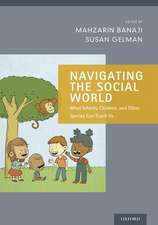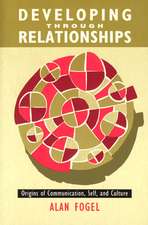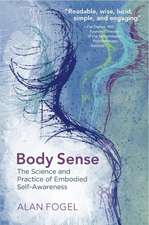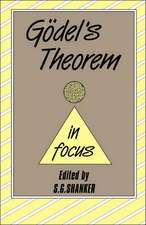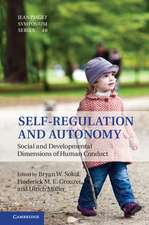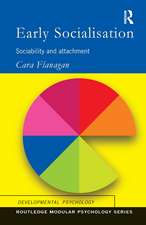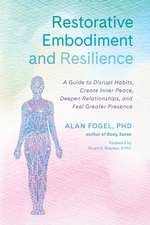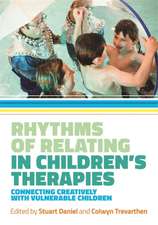Human Development in the Twenty-First Century: Visionary Ideas from Systems Scientists
Editat de Alan Fogel, Barbara J. King, Stuart G. Shankeren Limba Engleză Paperback – 23 noi 2011
| Toate formatele și edițiile | Preț | Express |
|---|---|---|
| Paperback (1) | 321.65 lei 6-8 săpt. | |
| Cambridge University Press – 23 noi 2011 | 321.65 lei 6-8 săpt. | |
| Hardback (1) | 444.70 lei 6-8 săpt. | |
| Cambridge University Press – 19 dec 2007 | 444.70 lei 6-8 săpt. |
Preț: 321.65 lei
Nou
Puncte Express: 482
Preț estimativ în valută:
61.56€ • 64.03$ • 51.59£
61.56€ • 64.03$ • 51.59£
Carte tipărită la comandă
Livrare economică 13-27 martie
Preluare comenzi: 021 569.72.76
Specificații
ISBN-13: 9781107403147
ISBN-10: 1107403146
Pagini: 270
Dimensiuni: 152 x 229 x 14 mm
Greutate: 0.36 kg
Editura: Cambridge University Press
Colecția Cambridge University Press
Locul publicării:New York, United States
ISBN-10: 1107403146
Pagini: 270
Dimensiuni: 152 x 229 x 14 mm
Greutate: 0.36 kg
Editura: Cambridge University Press
Colecția Cambridge University Press
Locul publicării:New York, United States
Cuprins
Preface: the dynamic systems approach to fostering human development Alan Fogel, Barbara J. King and Stuart G. Shanker; Part I. Dynamic Relationships between Genetics and Environments: 1. Developmental dynamics: the new view from the life sciences Robert Lickliter; 2. Genes, experience and behaviour Timothy D. Johnston; 3. How dynamic systems have changed our minds Ken Richardson; 4. Individual development as a system of coactions: implications for research and policy Gilbert Gottlieb and Carolyn Tucker Halpern; 5. Gene-environment interactions and inter-individual differences in rhesus monkey behavioral and biological development Stephen J. Suomi; Part II. The Dynamic System of the Child in the Family: 6. Relationships that support human development Alan Fogel; 7. The impact of emotions and the emotional impact of a child's first words Stuart G. Shanker; 8. Emotional habits in brain and behaviour: a window on personality development Marc D. Lewis; 9. Creating family love: an evolutionary perspective Barbara J. King; Part III. The Dynamic System of the Child in Social and Physical Environment: 10. The tempest: anthropology and human development Peter Gow; 11. An anthropology of human development: what difference does it make? Christina Toren; 12. The social child Tim Ingold; 13. Learning about human development from a study of educational failure Gillian Evans; 14. Dynamic views of education Lynette Friedrich Cofer; 15. Embodied communication in non-human animals Barbara Smuts; 16. Children in the living world: why animals matter for children's development Gail F. Melson; Part IV. Dynamic Systems Approaches to Mental Health: 17. A dynamic developmental model of mental health and mental illness Stanley I. Greenspan; 18. Dyadic microanalysis of mother–infant communication informs clinical practice Beatrice Beebe and Joseph Jaffe; 19. Current problems of Japanese youth: some possible pathways for alleviating these problems from the perspective of dynamic systems theory Alan Fogel and Masatoshi Kawai; 20. A different way to help George Downing; 21. Why do siblings often turn out very differently? Michael E. Kerr; 22. A dynamic systems approach to understanding family and peer relationships: implications for effective interventions with aggressive youth Isabela Granic; 23. Prenatal substance exposure and human development Daniel S. Messinger and Barry M. Lester; Part V. Conclusions and Outlook: 24. Dynamic systems methods for the life sciences Alan Fogel, Stanley Greenspan, Barbara J. King, Robert Lickliter, Pedro Reygadas, Stuart G. Shanker and Christina Toren.
Descriere
In this 2007 collection, a dynamic group of systems scientists consider ways to enhance human development worldwide.




